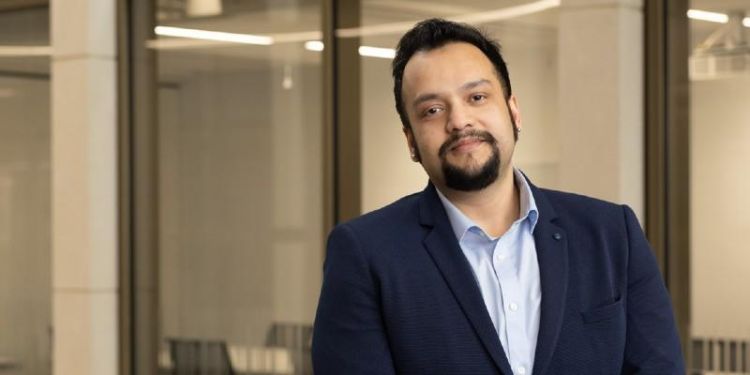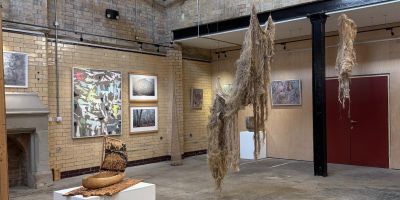Dr Dibyadyuti Roy to speak about digital humanities at international research forum

Dr Dibyadyuti Roy will be giving a talk about ontologies of digital humanities in and from the Global South, at a research forum organised by the Asian, African, Middle Eastern Studies Interest Group.
Taking place online on 25 April, this online event will feature three prominent speakers who have worked on a variety of important and creative South Asia-related digital humanities projects.
Dr Dibyadyuti Roy (University of Leeds), Dr Deepthi Murali (George Mason University) and Dr Elizabeth Lhost (Center for Research Libraries) will discuss their process of engaging with communities, digital tools and methods to facilitate interdisciplinary scholarship within or across a broad range of concepts, and the challenges of conducting a Global South-focused digital humanities project.
Talks will cover India’s first digital humanities collective (DHARTI), transcultural consumption of Indian and Indian-imitation textiles in the 18th and 19th centuries, and the Indian Princely States Online Legal History Archive (IPSOLHA).
Dr Dibyadyuti Roy is a Lecturer of Cultural Studies, Media Studies and Digital Humanities in the School of Fine Art, History of Art and Cultural Studies, University of Leeds.
His research examines cultural narratives of dominant technologies, ranging from nuclear weapons to artificial intelligence and algorithmically driven platforms.
Dr Roy’s core interests are in advancing data-driven research and teaching inventions, particularly in digital media and culture(s). His work also focuses on the interconnected structural inequities of race, caste, class and gender, especially from Majority World/Global South contexts. Dibyadyuti said:
“At the Digital Humanities: South Asia and Beyond research forum, I will be speaking on Resistive Ontologies of Digital Humanities in/from Majority Worlds.
“My talk emerges from a key question: how important is it for researchers, teachers and practitioners to identify with the normative ontologies of ‘digital humanities’ to participate and contribute in the supposedly ‘global’ project of digital humanities?
“I will be reflecting upon theoretical interventions in the field of digital humanities, alongside drawing upon my own lived experiences as a community-oriented digital humanities practitioner.
“My talk will emphasise tactics of advocacy and action that allow active structures of resistance against intersectional privileges and other oppressions in the digital humanities and related fields.
“I will also be reflecting on my experience of being a founding member of India’s first Digital Humanities collective – Digital Humanities Alliance for Research and Teaching Innovations (DHARTI) – an initiative which organises and facilitates digital practices in arts and humanities scholarship in India, within and beyond academic institutes.”
The Asian, African, Middle Eastern Studies Interest Group represents librarians and specialists and advises the Association of College and Research Libraries (ACRL). Find out about the research forum on Digital Humanities: South Asia and Beyond.
Find out more about Dr Dibyadyuti Roy’s research.
Image
Dr Dibyadyuti Roy. Photo © University of Leeds.




